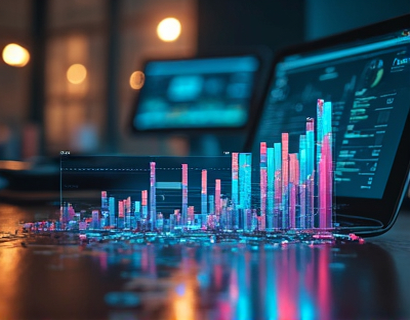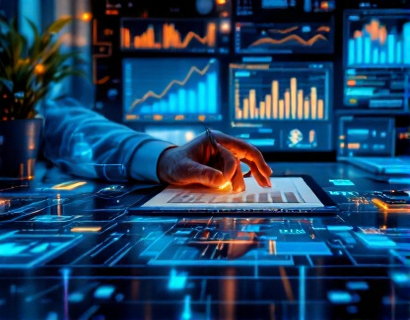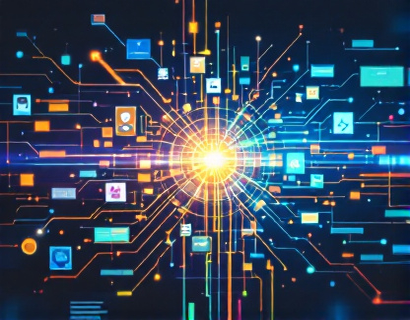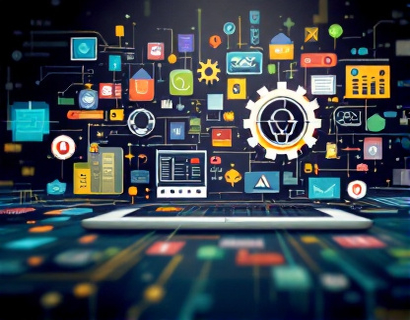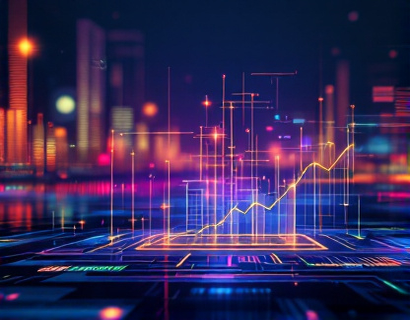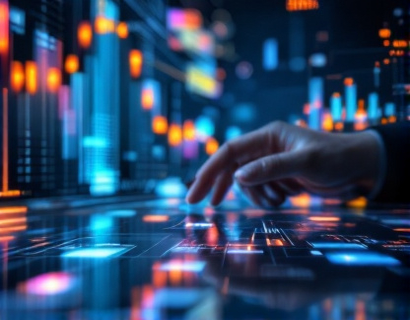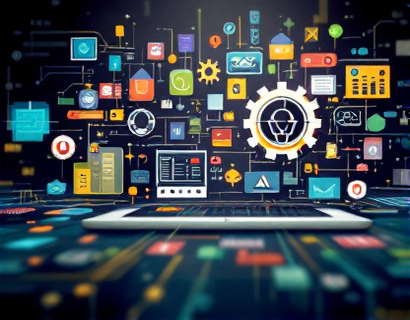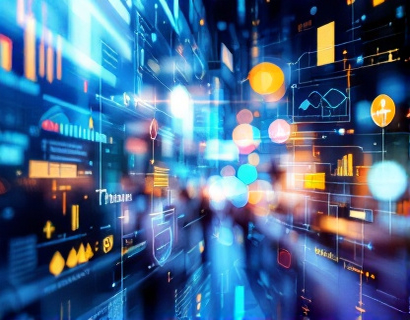AI and Crypto: Transforming Finance and Technology with Next-Gen Innovations
The intersection of artificial intelligence (AI) and cryptocurrency is ushering in a new era of financial and technological innovation. This fusion is not only enhancing user experiences but also redefining industry standards across various sectors. As we delve into this transformative landscape, it's essential to understand the key players, technologies, and applications that are driving this change.
The finance sector, traditionally rooted in conventional systems, is undergoing a significant metamorphosis thanks to the advent of blockchain technology and AI. Blockchain, the backbone of cryptocurrencies, offers a decentralized, transparent, and secure way to conduct transactions. When combined with AI, it creates a powerful synergy that can optimize processes, reduce costs, and enhance security.
Enhancing Security with AI
One of the most immediate benefits of integrating AI into cryptocurrency and fintech is the enhancement of security measures. Traditional financial systems are often targeted by cybercriminals due to their complexity and the large amounts of sensitive data they handle. AI algorithms can detect and respond to anomalies in real-time, identifying potential threats before they materialize.
Machine learning models, a subset of AI, are trained on vast datasets to recognize patterns and behaviors that indicate fraudulent activity. These models can analyze transaction patterns, user behavior, and network activity to flag suspicious actions. For instance, AI can monitor blockchain transactions for unusual spikes in activity or detect unauthorized access attempts, thereby strengthening the overall security of the system.
Improving Efficiency through Automation
AI-driven automation is another critical area where the fusion of AI and cryptocurrency is making a significant impact. Manual processes in finance, such as KYC (Know Your Customer) checks, compliance monitoring, and report generation, are time-consuming and prone to human error. AI can automate these tasks, reducing the time and resources required while maintaining high accuracy.
Smart contracts, self-executing contracts with the terms directly written into code, are a prime example of AI-driven automation in the crypto space. These contracts can automatically enforce and execute agreements when predefined conditions are met, eliminating the need for intermediaries and reducing transaction costs. AI can further optimize smart contracts by analyzing data and suggesting improvements or identifying potential vulnerabilities.
Personalized User Experiences
The integration of AI in cryptocurrency and fintech also enables the creation of personalized user experiences. By leveraging data analytics and machine learning, platforms can offer tailored recommendations, financial insights, and investment strategies based on individual user preferences and behavior.
For instance, AI-powered chatbots can provide 24/7 customer support, answering queries and guiding users through complex financial processes. These chatbots can learn from user interactions, improving their responses over time and providing a more intuitive and user-friendly experience. Additionally, AI can analyze market trends and user data to suggest customized investment portfolios, helping users make informed decisions.
Enhancing Market Predictions
One of the most exciting applications of AI in the crypto space is its ability to enhance market predictions. Traditional financial markets rely heavily on historical data and expert analysis, but the volatility and complexity of cryptocurrency markets make accurate predictions challenging. AI algorithms, particularly those using deep learning and natural language processing, can analyze vast amounts of data from various sources, including social media, news articles, and market trends, to forecast price movements.
These predictions can be invaluable for traders and investors, helping them make more informed decisions and potentially increasing their returns. AI can also identify emerging trends and patterns that human analysts might miss, providing a competitive edge in the fast-paced crypto market.
Cross-Chain Interoperability
Another area where AI is making waves is in cross-chain interoperability. As the number of cryptocurrencies and blockchain platforms grows, the need for seamless interaction between different systems becomes increasingly important. AI can facilitate this by developing protocols and algorithms that enable different blockchains to communicate and transact with each other efficiently.
This interoperability is crucial for building a more connected and integrated financial ecosystem. AI can optimize routing of transactions, manage consensus mechanisms, and ensure the security and integrity of cross-chain operations. This not only enhances the functionality of individual platforms but also fosters innovation by allowing developers to build more complex and versatile applications.
Decentralized Finance (DeFi)
Decentralized Finance (DeFi) is a rapidly growing sector that leverages blockchain and AI to create financial services without traditional intermediaries. AI plays a pivotal role in DeFi by improving risk management, optimizing lending and borrowing processes, and enhancing liquidity management.
For example, AI-driven risk assessment models can evaluate the creditworthiness of users in decentralized lending platforms, reducing the need for manual underwriting and speeding up the loan approval process. AI can also optimize liquidity pools by dynamically adjusting the ratios of different assets based on market conditions, ensuring optimal returns for liquidity providers.
Tokenization and AI
Tokenization, the process of converting assets into digital tokens on a blockchain, is another area where AI can add significant value. AI can analyze market data and user behavior to identify which assets are most suitable for tokenization and predict the potential demand for these tokens.
Moreover, AI can enhance the management of tokenized assets by providing real-time insights into market performance, user engagement, and other key metrics. This data-driven approach can help issuers and investors make more informed decisions, ultimately driving the growth and adoption of tokenized assets.
Challenges and Considerations
While the potential benefits of AI and cryptocurrency are vast, there are also challenges and considerations that need to be addressed. Regulatory frameworks are still evolving, and the lack of clear guidelines can create uncertainty for businesses and users. Ensuring compliance with existing regulations while innovating is a delicate balance that requires careful navigation.
Additionally, the environmental impact of blockchain and AI technologies, particularly the energy consumption associated with proof-of-work consensus mechanisms, is a growing concern. The industry is exploring more sustainable alternatives, such as proof-of-stake and other energy-efficient consensus algorithms, to mitigate these issues.
Future Outlook
Looking ahead, the integration of AI and cryptocurrency is poised to continue transforming finance and technology. As AI algorithms become more sophisticated and blockchain technology matures, we can expect even more innovative applications and use cases.
One potential development is the rise of AI-powered virtual assistants that can manage complex financial tasks, from budgeting and investing to tax planning and compliance. These assistants can provide personalized advice and automate routine tasks, making financial management more accessible and efficient for a broader audience.
Another exciting frontier is the integration of AI with other emerging technologies, such as the Internet of Things (IoT) and 5G networks. This convergence can lead to the creation of smart financial ecosystems where devices and systems interact seamlessly, enabling real-time data exchange and automated decision-making.
In conclusion, the fusion of AI and cryptocurrency is revolutionizing the way we think about finance and technology. By enhancing security, improving efficiency, personalizing user experiences, and enabling new financial models, this synergy is paving the way for a more innovative and inclusive financial future. As the industry continues to evolve, staying informed and adaptable will be key to harnessing the full potential of these transformative technologies.



